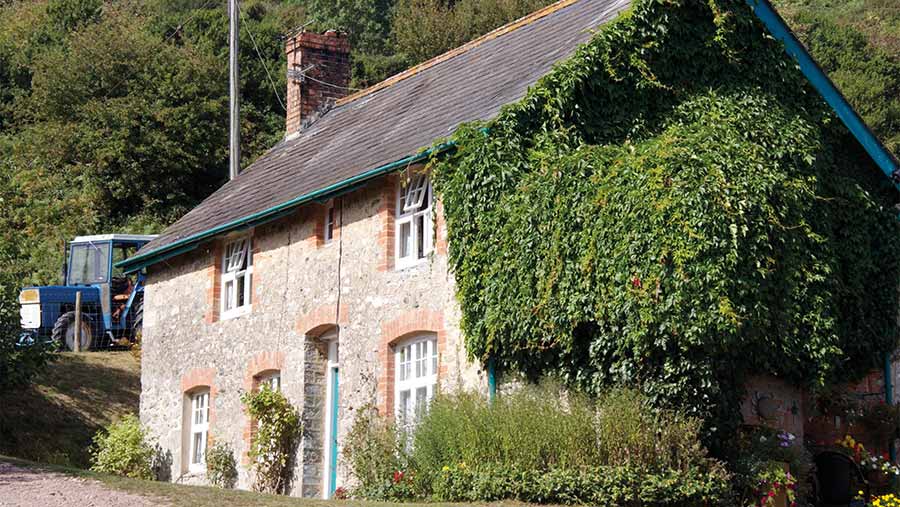Advice for farm businesses on handling HMRC tax inquiries
 © David Hughes/Adobe Stock
© David Hughes/Adobe Stock Facing a tax investigation can be stressful, disruptive and costly in terms of time and money for a farm business.
There are some common triggers for investigations and inquiries and important considerations for dealing with these.
Martyn Dobinson, a partner at accountant Saffery Champness, offers some expert insights.
See also: How does tax averaging work for farmers?
Reasons for an investigation
Investigations can be random, but some of the main red flags for HMRC are items in the tax return that are out of the ordinary.
These include significant changes in levels of income or expenses, or significant deviations from expected figures.
Other triggers are consistent late filing of returns, a history of errors and when the taxpayer does not use an accountant.
Areas where any judgement is involved, such as valuation, can also lead to additional scrutiny, for instance in the calculation of capital gains tax (CGT) associated with property sales.
“HMRC may request to see professional valuations for historical CGT base costs,’’ says Mr Dobinson.
“If relief is being claimed from CGT for improvements made to a property, HMRC may want to see the records to support the costs claimed. There can often be issues with evidence for historical costs.’’
Notification of an investigation
When HMRC intends to raise a formal inquiry, it must notify the taxpayer usually within 12 months of a return being submitted.
The inquiry could be conducted via a telephone conversation, in a single formal meeting or in multiple meetings.
Types of inquiry
HMRC may conduct a full inquiry or an aspect inquiry.
In a full inquiry, inspectors will scrutinise all significant risk areas of a tax return – those risk areas will depend on what is included on the return, says Mr Dobinson.
In an aspect inquiry, HMRC’s interest is normally limited to a specific area of the return.
“For example, in an ordinary year, if a farmer is trading in partnership, the return may just include a profit share from the partnership.
“But if the farmer also made a capital disposal or a tax-efficient investment and is claiming tax relief, that might attract the attention of HMRC,’’ says Mr Dobinson.
If a property has been disposed of and there is significant CGT at stake, HMRC may query the valuations, he adds.
A further process, known as a discovery assessment, means HMRC can open a previous year’s tax return if new evidence of a disclosure deficiency, and potential loss of tax, comes to light.
In some cases, this can be for deficiencies that may have occurred up to 20 years ago, dependent on the taxpayer’s behaviour.
Inquiry process for different business structures
The inquiry process is generally the same, regardless of the business structure.
For sole traders and partnerships, it will be an income tax inquiry and for limited companies a corporation tax inquiry.
Probability of a HMRC inspection
Mr Dobinson says there is always the risk of inquiry, but annually only a relatively small proportion of his clients are affected.
He advises that a potential inquiry can be pre-empted by using the “white space” for including additional detail on the tax return relating to any unusual items or transactions that could raise the interest of HMRC.
“If you have a transaction that is out of the ordinary, include a more detailed explanation.’’
Cost and timescale of dealing with an inquiry
This can range from a few hundred pounds in accountancy fees to many thousands, with some inquiries rumbling on for months and sometimes years in the case of taxpayers with complex affairs.
Mr Dobinson recommends taking out insurance to protect against this.
“Annual premiums are generally quite cheap, potentially just a few hundred pounds, and these policies can be invaluable as the professional costs of dealing with an inquiry can quickly escalate.
“Last December we had an inquiry raised with a small estate client and because there was an insurance policy in place, the client was able to leave it to us to deal with the process and get the whole thing wrapped up within a few weeks.’’
Best practice for dealing with an HMRC inquiry
- Reply to requests from an HMRC inspector quickly and fully
- Prepare properly for any meetings with inspectors, requesting an agenda or asking them to list the points they wish to cover
- Take notes of meetings to allow a comparison with HMRC’s record and ensure that anything you are asked to sign is consistent with your own record
- Comply with the inspector’s requests – goodwill and co-operation will help achieve a quicker resolution and potentially a more favourable outcome
